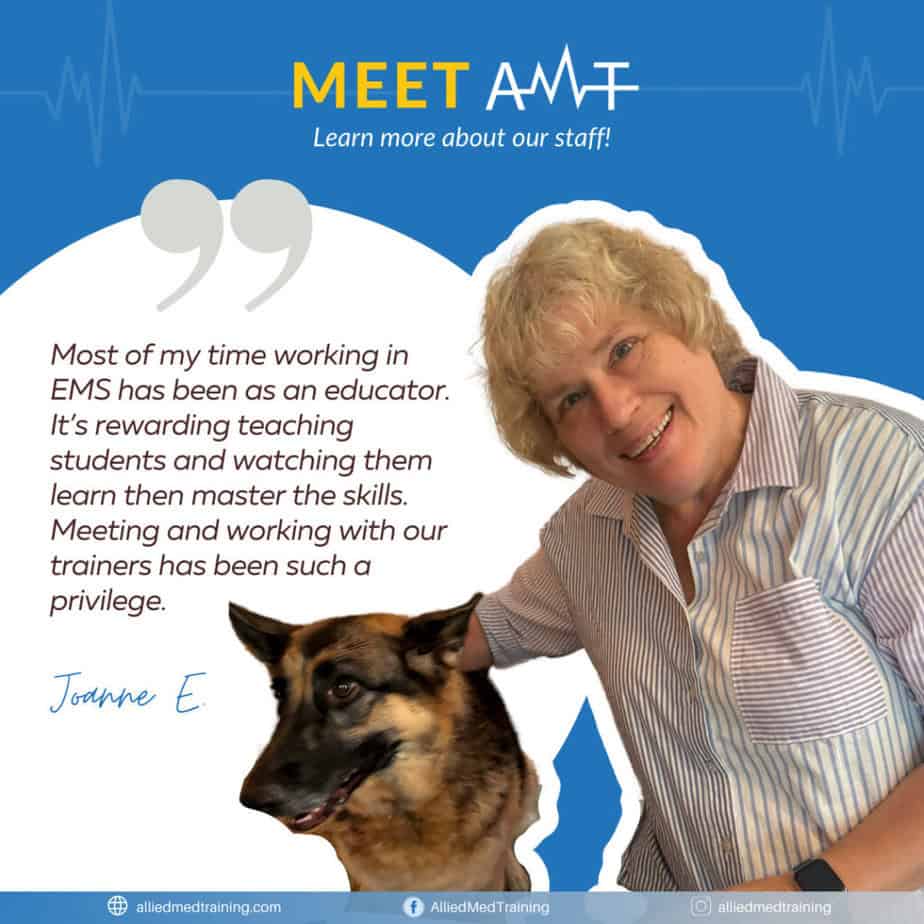
When/why did you first become interested in working in the EMS field?
I became an EMT in 2011 by taking one of AMT’s courses, so that I could work with Sean (Dr. Ewen). I had a lot of experience creating curricula both online and in a classroom from working as a professor in Criminal Justice. Sean needed the help and I was ready for a new career.
Tell us about your experience in the EMS field. What jobs have you had?
I worked as an EMT for an event-based team for a year while I started working for AMT. I taught in the classroom and started managing Student Services – phone, email, online student progress, curriculum development – eventually everything except finances and the ‘big picture.’
What is the most rewarding part about working in EMS?
Most of my time working in EMS has been as an educator. It’s rewarding teaching students and watching them learn then master the skills. Meeting and working with our trainers has been such a privilege. We have trainers who have been with us since the early years and they are like family now. Being able to hire our own grads, too, is such a pleasure, seeing how well they’ve done in EMS. So many of our grads have gone on to higher level healthcare careers as well.
What is your favorite part about working for Allied Medical Training?
It’s been exciting seeing the company grow, mainly through graduate recommendations. I feel like I made a big difference to that growth by providing excellent customer service and keeping classes going when Sean became too busy. I am very proud of our programs, especially proud of Sean creating one of the first hybrid EMS programs in the nation. Student success has always been our goal, and at this point it is very gratifying to have so many satisfied graduates.
If you could give advice to someone looking to become an EMT, what would you tell them?
EMS providers are in the business of helping others, often on the worst days of their lives when they’ve been injured or are ill. You have to be an active, lifelong learner to ensure competent patient care. You also need to have great communication skills to be a compassionate provider. And the training is quite short and inexpensive for a career when compared to many other technical careers. It is also a great stepping stone for anyone interested in a healthcare career. You can find out if you like learning about the human body and working so closely with people.
If you could have a superpower, what would it be?
I would like a photographic memory with lifelong ability to access all the information, including learning languages.

